Theme Thursday, Booking Through Thursday & ABC Wednesday
With Thursday Thirteen news & more prompts below
Try my Paranormal Flash now!
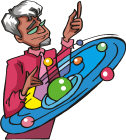
PROF ISAAC GALISTEIN
Welcome to my weekly magazine post. Watch
it grow thru the week. You can opt to read
the essay, current affairs, themed mini mag
with fiction & poetry, or just read the lot.
Plenty for everyone here. Do call again.
HATS
You’ve got to take your hat off to Tim Burton for his Alice in
Wonderland. He won’t be going cap in hand any time soon. And as
for the Mad Hatter … well he’s … (mad?) … But maybe not too
different. Think of the Victorian gent and his top hat. As with much
headwear it’s to do with status and identity – as is the crown of a
king. But you’ve got to worry about the need to have a big hat to
look bigger than the rest. And what can we say about wearing half
a ton of gold on the head. Makes the Mad Hatter rather sane,
don’t you think?
HISTORY
In human terms advancement is an illusion. History may show a steady
advance, but I suspect this is only culture deep. We simply make the
same mistakes, only in new cultural or technological clothes. This is
due to our historic changes being too extreme. It becomes so
because of frustration. An existent society causes general frustration
in a population, eventually causing an outbreak, through philosophy,
of a new idea. The philosophers behind this worked out their new idea
through being more frustrated than most, thus making the idea
extreme. The warriors then grasp the idea and add a further level of
fanaticism and the result is violent revolution or war. Such cultural
catalysts show the errors of the dialectical approach to understanding
history. This approach led to both communism and fascism and argues
two opposing societies will inevitably rise and clash, and out of their
clash, a new, more perfect society will evolve from their synthesis.
This is rubbish. The clash and synthesis may well occur, but the result
is never more perfect. We appear stuck in a continual rut of repeating
cycles. This is due to all ‘systems’ within a society having an urge to
power. Even the present democratic systems are become power crazy
– all systems do. But this is how history works and we survive –
changing the system now and again before it gets too powerful. We
used to do this through war. I wonder if we’ve advanced enough yet
to try another way. As to that way, history seems to show a law of
opposites in that conflicting systems and societies seem to rise in
fanaticism equal to the fanaticism of the other. Hence, maybe the
way to break the cycle is for one side to realize that a reduction of
fanaticism in theirs will inevitably lead to a reduction in the opposite.
I seem to recall some fellow speaking about turning the other cheek.
Maybe we’ve known the answer a long time.
Eye On the World
Essays on everything from science
to religion, politics to crime

BRIT NEWS: Tory leader say
it’s his patriotic duty to eject Labour.
I agree. No govt has done more to trash
everything that is British.
WORLD NEWS: France & Germany don’t like the many
Brits in Brit led EU diplomatic team. Doesn’t matter. Foreign
policy by committee a farce.
BRIT NEWS: Parties scoring points on who funds them. We know.
Rich tycoons. A ruse so they don’t have to tell of policies that won’t
work.
BRIT NEWS: Tory lead in polls crumbles. A looming election focuses the
voters’ minds, and they realise not one major party speaks for them.
MEDIA NEWS: Uproar at BBC plan to axe Radio 6 Music as it
profiles new talent. Demand main stations do this
function as they should!
BRIT NEWS: TV debates for main party leaders.
Does this mean roving campaigning will
lessen? If so they’ll lose touch
even more.
BRIT NEWS: Michael Foot, the politician,
has died at 96. Disliked his ideas.
Couldn’t fault his honesty.
Not many like him left.

FUTURE ZONE
What’s ahead … and Beyond!!!
One Single Impression
ReadWritePoem – Friday Flash 55
Heads or Tails – Three Word Wednesday
Sunday Scribblings – Thursday Poets’ Rally
MURMUR
Can you hear the sound? A murmur breaks,
Barely audible – through space it snakes,
Round planets and stars and into the dark,
Bringing light of knowledge; such a lark;
It’s the murmur of man in the space he belongs,
Satisfying curiosity, singing his song
DAY OF THE ALIEN
Sci Fi: The alien had been on Earth for only a short time when he
understood. At first, of course, he hadn’t. He looked on the primary
species – the Human – as a thug. How could he do all this to his
planet? he wondered. But then he thought of his own species’ dark
past – the myths of the First Ones who settled there, not
understanding the umbilical cord of planet to species. They had come
close to planetary destruction – until the planet had worked on their
genes, slowly but surely producing a species as one with it. Finally,
his ancestors had banished the First Ones, their destination lost to
history. And the alien turned to the Human. ‘Hello brother,’ he said.
CREATING MISCHIEF
All is beautiful when I think of you,
Watching the video does imbue,
Feelings of love of what I created,
Only to realise I was never sated,
So inevitably I had to wipe you all out,
A whole species following without any doubts,
Sometimes it’s hard being an omnipotent being,
Or a whizz kid playing in front of the screen
FLASH 55 – DESIRE
Sci Fi: I desire it so much. I’m trapped in a time loop, my conscious
knowledge ten seconds ahead of my actions. I desire it more than I’ve
ever desired anything before. Yet, the pain is crippling. But now,
knowing how unbearable the pain will be, I desire it so much – in the
time loop – for eternity.
THE PHOTOGRAPH
The telescope took it, cosmic past,
Showing eons ago, just after the blast,
Suns exploding, releasing life,
Initial stardust of my wife,
Showing destined thread from then to now,
As star and life we’re one, let’s bow
MODIFIED MAN
Bronze Age sword conquered all,
Iron split bronze, spectacular fall;
Cavalry charge, chevalier grace,
Tank wiped them out – increased pace;
Atom bomb, stark destiny,
Man is getting where he wants to be;
Forever wanting to modify,
Obedient to his will to try;
Now in space, invisibility veil,
Unbeatable gods! Morals fail
THAT BOOK
I’ll tell you a tale of years from now,
Everything changed – this is how,
A book appeared and totally enthralled,
Romance, it was – that was all,
But nothing could ever be the same,
An android that wrote; felt love and pain?

SCI NEWS: Dinosaurs WERE killed
by asteroid says panel of 41 experts.
Interesting how this confirmation comes
as warming being blamed.
SPORT NEWS: England soccer manager says recent
player scandals are ‘cos paid too much. It’s no longer sport
but a Big Biz media cult.
CRIME NEWS: Number of child criminals up 13% in UK under Labour.
Give kids more rights & they’ll have more grievances. It was inevitable.
BRIT NEWS: It seems prices of food and fuel are rising in Britain
as they come down in others. Greed of Big Biz is rampant
here now.
SCI NEWS: Stephen Hawking may leave UK as govt cuts
university money. It’s the pointless degrees should
go, allowing more for science.
BRIT NEWS: Brown has been to the Iraq Inquiry.
Right to go to war & troops properly funded.
Is he going into comedy when he’s
kicked out?
© Anthony North, March 2010
Try my Pictures of Life, a novel
 There’s a lot of time stuff in the post today.
There’s a lot of time stuff in the post today. Rather, there is just something about its representation I like. Now, you could argue men were men, and women were women, back then. But there are many more important reasons, such as a world in transition, a period of great intellectual pursuits, a world still to explore …
Rather, there is just something about its representation I like. Now, you could argue men were men, and women were women, back then. But there are many more important reasons, such as a world in transition, a period of great intellectual pursuits, a world still to explore …
 FINGER OF SUSPICION – Horror Fiction
FINGER OF SUSPICION – Horror Fiction
 To what extent can we know the world? We exist in the world, we sense the world, but is what we experience how the world really should be? Or is it more likely that ‘reality’ is fine tuned by a wider force?
To what extent can we know the world? We exist in the world, we sense the world, but is what we experience how the world really should be? Or is it more likely that ‘reality’ is fine tuned by a wider force? This is evident by the proliferation of conspiracy theories. Everything, it seems, is NOT how others say it is. A mentality is arising that nothing can be trusted.
This is evident by the proliferation of conspiracy theories. Everything, it seems, is NOT how others say it is. A mentality is arising that nothing can be trusted. Now, this is obviously not a real ‘reality’.
Now, this is obviously not a real ‘reality’. 


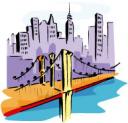 Following Newton the universe was seen as a mechanistic concept. Like a machine, actions in the universe were predictable and answerable to a simple set of laws. So complete was this picture that towards the end of the 19th century scientists were predicting the end of science, for all the questions were nearly answered.
Following Newton the universe was seen as a mechanistic concept. Like a machine, actions in the universe were predictable and answerable to a simple set of laws. So complete was this picture that towards the end of the 19th century scientists were predicting the end of science, for all the questions were nearly answered.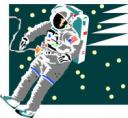
 I am coming close to the end of my History of Man, with only two more posts to go after this one. So maybe, at this point, I should look at one of the most important patterns within world history.
I am coming close to the end of my History of Man, with only two more posts to go after this one. So maybe, at this point, I should look at one of the most important patterns within world history. One final region pre-occupied with the ideological struggles between capitalism and communism was Latin and South America, itself affected by the US need to keep communism at bay.
One final region pre-occupied with the ideological struggles between capitalism and communism was Latin and South America, itself affected by the US need to keep communism at bay.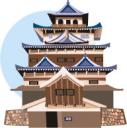 In 1911 a nationalist revolt broke out in China, helped by their secret societies, including the Tongmenghui, or United League, led by Sun Yat-sen. The following year they deposed the last Manchu emperor but the movement fell apart into warlordism.
In 1911 a nationalist revolt broke out in China, helped by their secret societies, including the Tongmenghui, or United League, led by Sun Yat-sen. The following year they deposed the last Manchu emperor but the movement fell apart into warlordism.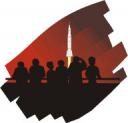 The Cold War was born out of the 1945 Yalta Conference to define areas of responsibility in a post-world war world. Stalin gained most, communist governments existing in Hungary, Poland, Bulgaria and Romania by 1947, with Czechoslovakia and East Germany to follow.
The Cold War was born out of the 1945 Yalta Conference to define areas of responsibility in a post-world war world. Stalin gained most, communist governments existing in Hungary, Poland, Bulgaria and Romania by 1947, with Czechoslovakia and East Germany to follow.